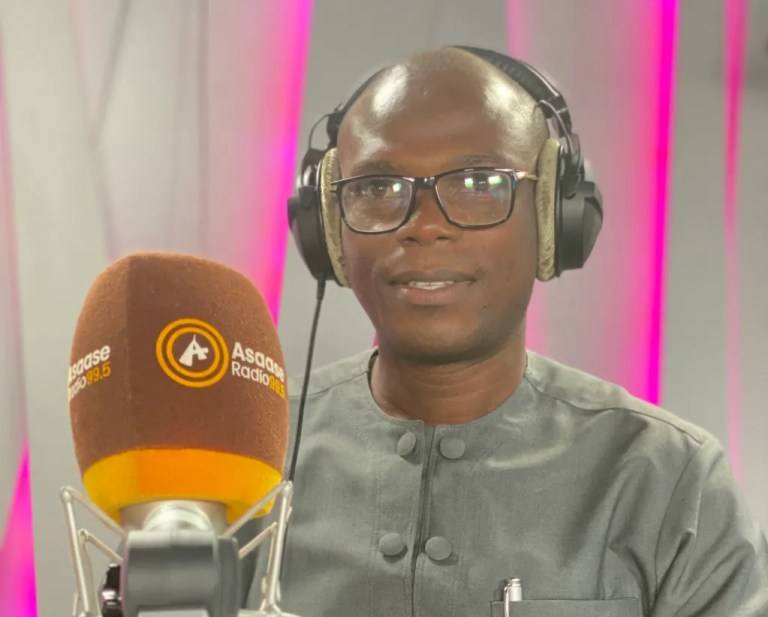Sulemana Braimah, the Executive Director of the Media Foundation for West Africa (MFWA), has ignited a vital conversation about Ghana’s Free Senior High School (Free SHS) program. In a call for honesty and transparency, he urged educators, policymakers, and stakeholders to openly discuss the challenges plaguing the initiative.
The Free SHS policy, introduced in 2017, aimed to remove financial barriers to secondary education. It eliminated tuition fees and provided support for textbooks, meals, and boarding, which significantly increased school enrollment. However, seven years later, cracks have begun to show in its implementation, sparking debates about its long-term viability and impact on the nation’s educational system.
In a recent post on X (formerly Twitter), Braimah described the program's challenges as dire and called for educators to speak up. "Headmasters and teachers can now speak about the dire challenges of Free SHS. The grand government’s deception and repression must end. We need to be honest with each other and fix the grand problems with secondary education. We can’t afford to destroy the future of our kind," he wrote.
The once-celebrated policy now faces criticism for creating overcrowded classrooms, strained resources, and inadequate infrastructure. These issues have left educators overwhelmed and raised concerns about the quality of education being delivered.
For many teachers, the challenges are more than logistical; they threaten the foundational goals of education. Overcrowded classrooms have stretched the capacity of both teachers and facilities. Stories of 80 to 100 students crammed into single classrooms have become common, with teachers struggling to provide adequate attention to each learner. Meanwhile, delays in the provision of textbooks and essential teaching materials further complicate the situation.
As Braimah noted, these challenges have been compounded by a lack of open dialogue about the program’s shortcomings. "We cannot continue to pretend that everything is fine when we know it’s not," he said. "We need to come together to fix the challenges, not only to save the future of the students but to secure the future of the nation."
The Free SHS policy initially brought hope to many families who previously could not afford secondary education for their children. Its introduction saw a significant increase in enrollment, providing opportunities for thousands of Ghanaian children. However, the sudden surge in student numbers put an immense strain on resources.
Infrastructure, which was already inadequate in many schools, could not keep pace with the rising enrollment. Dormitories became overcrowded, dining halls inadequate, and some students were forced to attend classes under trees or in temporary structures.
For teachers, the policy’s implementation has also meant increased workloads without corresponding improvements in working conditions. Many report being overburdened, with little support from the government to address the growing challenges. Despite their dedication, the overwhelming pressure has led to fears about burnout and declining motivation among educators.
Parents and students have also raised concerns about the policy’s unintended consequences. While education has become more accessible, some argue that the quality has been sacrificed. Parents complain about delays in accessing government-supplied textbooks, while students speak of the difficulties of learning in overcrowded environments.
Braimah’s call for transparency comes at a crucial time. With Ghana’s elections just months away, the Free SHS policy remains a key issue for political debate. While its successes are frequently highlighted in government communications, critics argue that the narrative has been one-sided. They urge a balanced discussion that acknowledges both achievements and challenges.
As Braimah pointed out, "The time for silence is over. Headmasters, teachers, and students must be allowed to speak freely about the challenges they face. We need to engage in an honest conversation about the future of our education system."
Several educators have expressed agreement with Braimah’s stance, emphasizing the need for reforms to make the program sustainable. Suggestions include increasing funding to address infrastructure deficits, improving resource distribution, and ensuring that teachers receive adequate support.
Policymakers, too, face the task of balancing accessibility with quality. While the Free SHS policy has been a game-changer in terms of access to education, its long-term success will depend on addressing the issues that threaten to undermine its impact.
Braimah’s appeal for honesty and action resonates with many Ghanaians who believe in the potential of the Free SHS program but are frustrated by its implementation. For educators, parents, and students alike, the hope is that open dialogue will lead to meaningful reforms, ensuring that the policy fulfills its promise of providing quality education for all.
As the conversation around Free SHS continues, one thing is clear: the future of Ghana’s education system depends on the willingness of stakeholders to confront its challenges head-on. Only by addressing these issues can the country secure a brighter future for its students and the nation as a whole.


